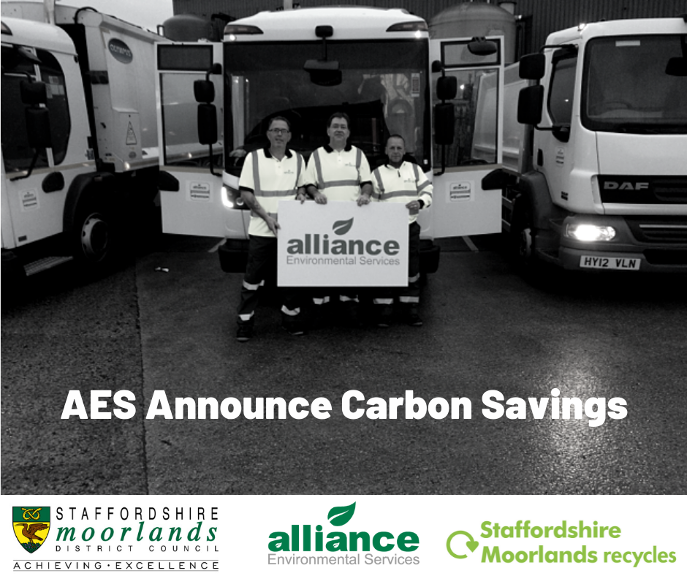Investment in new waste vehicles drives carbon savings

Published on 1 November 2021
Replacing older, less efficient waste and recycling collection vehicles with new ones featuring the latest engine technology has helped Staffordshire Moorlands save 141 tonnes in carbon emissions - the equivalent of taking three refuse collection vehicles off the roads every year.
The District Council and its waste collection partner Alliance Environmental Services (AES) have invested in 18 new, more efficient vehicles with Euro-6 engines, the best diesel engines currently available, which reduce harmful pollutants from vehicle exhausts.
Councillor Joe Porter, Cabinet Member for Climate Change and Biodiversity, said: "Reducing carbon emissions is one of the main ways we can address the climate emergency and help our planet to repair so I'm delighted that this investment in new vehicles is helping to drive that change here in the Moorlands.
"We have a target of being carbon neutral by 2030 and we're prioritising our services and operations to make sure the Council and its partners, including AES, are part of the solution and play a significant role in achieving that target.
"This is a really great start but we're not resting on our laurels - we'll continue to explore other technologies and innovations, such as alternative fuel sources, to see if we can use them to good effect in our District."
And the benefits of the new vehicles extend further than the significant reduction in carbon emissions. All wagons are fitted with other state-of-the-art technology including electric bin lifts, in-cab screens so drivers can monitor any potential hazards and a better fuel management system.
Councillor Sav Scalise, Cabinet Member for the Environment, said: "Not only does the new fleet help us reduce our carbon footprint, it also improves an essential service that every household and many businesses in the Moorlands rely on.
"The wagons are fuel-efficient, more economic and allow the workforce to provide a better quality service to residents as well as contributing to better air quality. It's just a good news story all round and we're thrilled to have these vehicles in service and on our roads."




